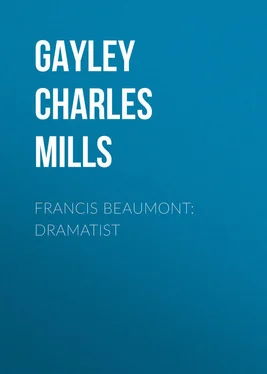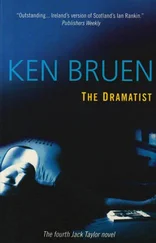Charles Gayley - Francis Beaumont - Dramatist
Здесь есть возможность читать онлайн «Charles Gayley - Francis Beaumont - Dramatist» — ознакомительный отрывок электронной книги совершенно бесплатно, а после прочтения отрывка купить полную версию. В некоторых случаях можно слушать аудио, скачать через торрент в формате fb2 и присутствует краткое содержание. Жанр: cinema_theatre, foreign_antique, foreign_prose, Биографии и Мемуары, на английском языке. Описание произведения, (предисловие) а так же отзывы посетителей доступны на портале библиотеки ЛибКат.
- Название:Francis Beaumont: Dramatist
- Автор:
- Жанр:
- Год:неизвестен
- ISBN:нет данных
- Рейтинг книги:5 / 5. Голосов: 1
-
Избранное:Добавить в избранное
- Отзывы:
-
Ваша оценка:
- 100
- 1
- 2
- 3
- 4
- 5
Francis Beaumont: Dramatist: краткое содержание, описание и аннотация
Предлагаем к чтению аннотацию, описание, краткое содержание или предисловие (зависит от того, что написал сам автор книги «Francis Beaumont: Dramatist»). Если вы не нашли необходимую информацию о книге — напишите в комментариях, мы постараемся отыскать её.
Francis Beaumont: Dramatist — читать онлайн ознакомительный отрывок
Ниже представлен текст книги, разбитый по страницам. Система сохранения места последней прочитанной страницы, позволяет с удобством читать онлайн бесплатно книгу «Francis Beaumont: Dramatist», без необходимости каждый раз заново искать на чём Вы остановились. Поставьте закладку, и сможете в любой момент перейти на страницу, на которой закончили чтение.
Интервал:
Закладка:
The essay in which this noble estimate of Beaumont occurs remains indeed "the classical modern criticism of Beaumont and Fletcher," and although recent research has resulted in "variety of opinion concerning the precise authorship of some of the plays commonly attributed to those writers" its value is substantially unaffected. The figure as revealed in glorious proportions to the penetrative imagination and the sympathy of poetic kinship, remains, but by the patient processes of scientific research the outlines have been more sharply defined and the very lineaments of Beaumont's countenance and of Fletcher's, too, brought, I think, distinctly before us. Though Swinburne attributes, almost aright, to Beaumont alone one play, The Woman-Hater , and ascribes to him the predominance in, and the better portions of Philaster and The Maid's Tragedy , and the high interest and graduated action of the serious part of A King and No King , and also justly associates him with Fletcher in the composition of The Scornful Lady , and gives him alone "the admirable study of the worthy citizen and his wife who introduced to the stage and escort with their applause The Knight of the Burning Pestle ," and implies his predominance in that play, he does not enumerate for us the acts and scenes and parts of scenes which are Beaumont's or Fletcher's, or Beaumont's revised by Fletcher, in any of these plays; and consequently he points us to no specific lines of poetic inspiration, no movements distinctively conceived by either dramatist and shaped by his dramatic pressure, no touchstone by which the average reader may verify for himself that "to Beaumont his stars had given as birthright the gifts of tragic pathos and passion, of tender power and broad strong humour," and that "to Fletcher had been allotted a more fiery and fruitful force of invention, a more aerial ease and swiftness of action, a more various readiness and fullness of bright exuberant speech." Though he is right in discerning in the homelier emotion and pathetic interest of The Coxcombe , and of Cupid's Revenge the note of Beaumont's manner, he couples with the former The Honest Man's Fortune in which it is more than doubtful whether Beaumont had any share. To speak of Arbaces in A King and No King as Beaumont's, is mainly right, but not wholly, and to assign to him the keen prosaic humour of Bessus and his swordsmen, is to assign precisely the scenes that he did not compose. To speak of Beaumont's Triumph of Love is perhaps defensible; but, with grave reluctance, we now question the attribution. He is justified in withdrawing "the noble tragedy of Thierry and Theodoret " from the field of Beaumont's coöperation and ascribing it to Fletcher and Massinger; but he is undoubtedly wrong when he fails to couple the latter's name with that of Fletcher as author of Valentinian . Writing as Swinburne did after a study of Fleay's first investigations into the versification of Fletcher, Beaumont, and Massinger, the wonder is not that once or twice, as a critic, he makes an incorrect attribution, but that his poetic instinct so successfully defied the temptation to enumerate in detail the respective contributions of Beaumont and Fletcher on the basis of metrical tests par excellence , – so surprisingly novel and seductively convincing were the tests then recently formulated. Swinburne's mistakes are of sane omission rather than of supererogation. By his judgments as a critic one can not always swear; but here he is, in the main, marvelously right, and a thousand times rather to be followed than some of the successors of Fleay who have swamped the personality of Beaumont by heaping on him, foundered, sods from a dozen turf-stacks which he never helped to build.
But the chorizontes – those who would separate every scene and line of the one genius from those of the other – are not lightly to be spoken of. It is only by combining their methods of analysis with the intuitions of the poet-critics that one may hope to see Frank Beaumont plain: "the worthiest and closest follower of Shakespeare in the tragic field; the earliest as well as ablest disciple of Ben Jonson in pure comedy, varied with broad farce and mock-heroic parody." The labour is well bestowed if by its means lovers of poetry and the drama, while not ceasing to admire the elder dramatist, Fletcher, may be led to accede at last to the younger his due and undivided honour, may come to speak of him by unhyphenated name – a personality of passion and of fire, a gracious power in poetry, of effulgent dramatic creativity; – if, like the ancients, they may protest occasionally in the name of Pollux alone.
CHAPTER II
BEAUMONT'S FAMILY; HIS EARLY YEARS: GRACE-DIEU, OXFORD
Francis Beaumont, the dramatist, came of the younger line of an ancient and distinguished family of Anglo-Norman descent in which there had been Barons de Beaumont from the beginning of the fourteenth to the beginning of the sixteenth century. They lived, as did the dramatist later, in the forest of Charnwood in Leicestershire, – part of the old forest of Arden. And it is of a ride to their family seat that John Leland, the antiquary, speaks when in his itinerary, written between 1535 and 1543, he says: "From Leicester to Brodegate, by ground well wooded three miles… From Brodegate to Loughborough about a five miles… First, I came out of Brodegate Park into the forest of Charnwood, commonly called the Waste. This great forest is a twenty miles or more in compass, having plenty of wood… In this forest is no good town nor scant a village; Ashby-de-la-Zouche, a market town and other villages on the very borders of it… Riding a little further I left the park of Beau Manor, closed with stone walls and a pretty lodge in it, belonging of late to Beaumonts… There is a fair quarry of alabaster stone about a four miles from Leicester, and not very far from Beau Manor. 1 1 Leland's Itinerary , Ed. L. T. Smith, Vol. I, 18-19.
… There was, since the Bellemonts [Beaumonts], earls of Warwick, a baron [at Beaumanoir] of great lands of that name; and the last of them in King Henry the Seventh's time was a man of simple wit. His wife was after married to the Earl of Oxford." 2 2 Leland's Itinerary , Ed. L. T. Smith, Vol. IV, 126.
These barons "of great lands," living in Charnwood Forest, – where, as another old writer tells us, "a wren and a squirrel might hop from tree to tree for six miles; and in summer time a traveler could journey from Beaumanoir to Burden, a good twelve miles, without seeing the sun," – these barons are the de Beaumonts, from the fourth of whom, John, Lord Beaumont, who died in 1396, our dramatist was descended.
The barony ran from father to son for six generations of alternating Henries and Johns, c. 1309 to 1460. John, fourth Baron; was grandson of Alianor, daughter of Henry, Earl of Lancaster, and so descended from Henry III and the first kings of the House of Plantagenet. The second Baron, husband of Alianor of Lancaster, was through his mother, Alice Comyn, descended from the Scotch Earls of Buchan, and thus connected with the Balliols and the royal House of Scotland; through his father, Henry, the first Baron de Beaumont, who died in 1343, he was great-grandson of John de Brienne, titular King of Jerusalem, 1210-1225. 3 3 Collins, Peerage of England , IX, 460.
In a quaint tetrastich in the church of Barton-upon-Humber, the memory of these alliances is thus preserved:
Rex Hierosolymus cum Bellomonte locatur,
Bellus mons etiam cum Baghan consociatur,
Bellus mons iterum Longicastro religatur,
Bellus mons … Oxonie titulatur. 4 4 J. Nichols, Collections toward the History of Leicestershire ( Biblioth. Topogr. Brit. , VII, 534). See, below, Appendix, A.
Интервал:
Закладка:
Похожие книги на «Francis Beaumont: Dramatist»
Представляем Вашему вниманию похожие книги на «Francis Beaumont: Dramatist» списком для выбора. Мы отобрали схожую по названию и смыслу литературу в надежде предоставить читателям больше вариантов отыскать новые, интересные, ещё непрочитанные произведения.
Обсуждение, отзывы о книге «Francis Beaumont: Dramatist» и просто собственные мнения читателей. Оставьте ваши комментарии, напишите, что Вы думаете о произведении, его смысле или главных героях. Укажите что конкретно понравилось, а что нет, и почему Вы так считаете.












